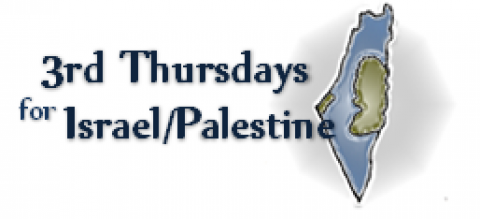
Organizations in the Faith Forum on Middle East Policy send out action alerts monthly, focusing on different issues so that members of Congress hear consistently that their constituents support a just and lasting resolution to the Palestinian and Israeli conflict.
September 2016
Join Christians and others around the world in praying, educating, and advocating for a just peace for Palestinians and Israelis through the World Week for Peace in Palestine Israel. “Dismantling Barriers” is the 2016 theme for this annual initiative of the Palestine Israel Ecumenical Forum (PIEF) of the World Council of Churches. Find resources for worship, prayer, education, and advocacy that can be used by your congregation or group now and in the months ahead.
Take action now! Contact your elected officials to urge the dismantling of the barrier built on occupied Palestinian land and the end to all barriers to a just peace.
- The Barrier consists of concrete walls, fences, ditches, razor wire, groomed sand paths, an electronic monitoring system, patrol roads, and a buffer zone.
- The Barrier’s total length (constructed and projected) is approximately 712 km, more than twice the length of the 1949 Armistice (“Green”) Line.
- Some 85% of the Barrier’s route runs inside the West Bank, rather than along the Green Line; if completed as planned, the Barrier will isolate 9.4% of the West Bank, including East Jerusalem.
– From The Humanitarian Impact of the Barrier, UNOCHAoPt July 2013
The International Court of Justice (ICJ) issued an advisory opinion in 2004 declaring that the barrier being built in occupied Palestinian territory is illegal, that it should be torn down, and that those who have suffered as a consequence of its construction should be compensated. Yet the barrier remains and continues to separate Palestinians from schools, fields, work, and neighbors. Ziad, a Palestinian child who lives between the barrier and the Green Line, expressed a simple yearning, “My main wish is to be like any other child in the world and that my friends can come freely to visit me at home.”
While the ICJ opinion recognized Israel’s need to protect its citizens, it stressed that security efforts must comply with international law. The Israeli human rights organization B’Tselem describes the disconnect between security concerns and the route of the wall, saying, “In setting the Barrier's route, Israeli officials almost entirely disregarded the severe infringement of Palestinian human rights. The route was based on irrelevant considerations completely unrelated to the security of Israeli civilians.”
The barrier also takes a heavy toll on the environment, as a recent report notes, “Barrier construction frequently results in land degradation, fragmentation of ecosystems, erosion and compaction of soil, heaping up of earth walls, arbitrary disposal of waste, and accumulation of dust on agricultural lands and trees.”
Join with others around the world to say, “Now is the time for Palestinians and Israelis to share a just peace; for freedom from occupation; for equal rights; for the healing of wounded souls.” (WWPPI)
Cick here to take action. Call on Congress to:
- Insist on the full dismantlement of the barrier built on occupied Palestinian land.
- Support an end to the occupation of Palestinian land including an end to the Gaza blockade.
- Recognize that U.S. diplomatic and financial support enable the occupation. The U.S. currently provides over $3 billion per year in military aid to Israel.
- Condition military aid to Israel on its compliance with U.S. law and policy. Questions must be raised about how U.S. military aid to Israel is being used in order to ensure that it is not enabling human rights violations including those arising from the construction of the separation barrier.
For more:
Video on the Cremisan Valley by the Jerusalem Interchurch Center.
“Israel’s ‘apartheid wall’ inspires more violence than it deters,” Middle East Eye, September 12, 2016.
